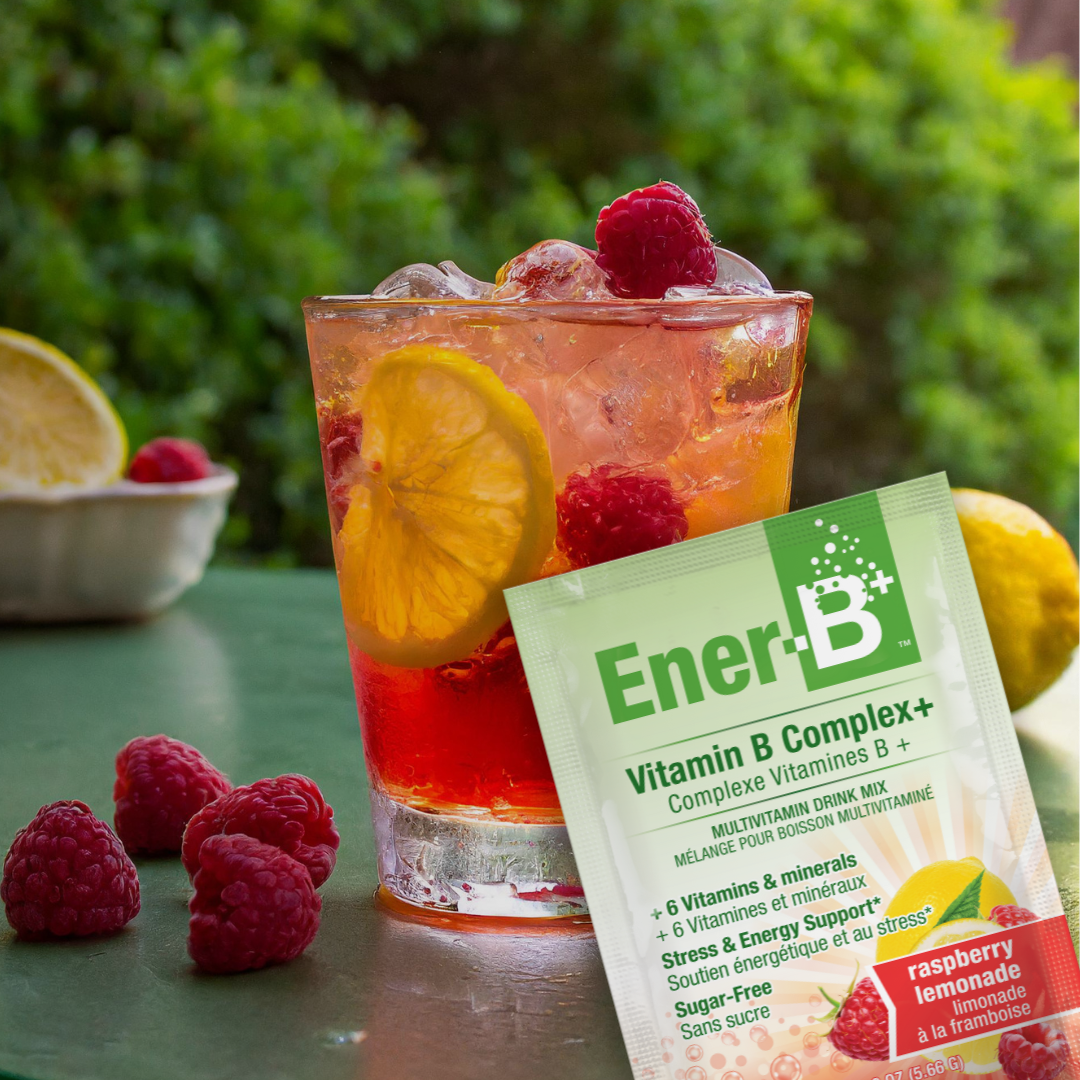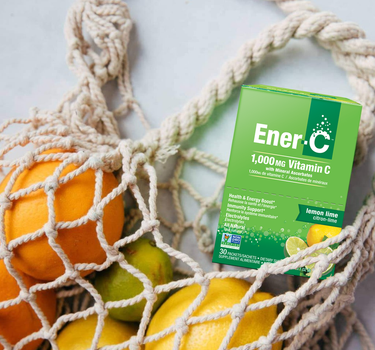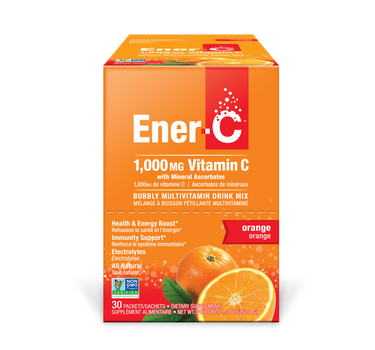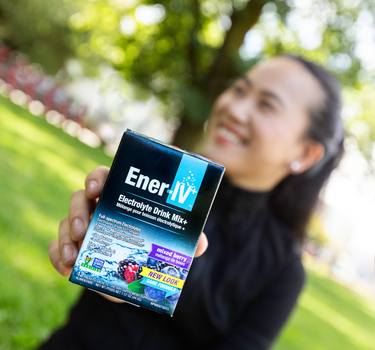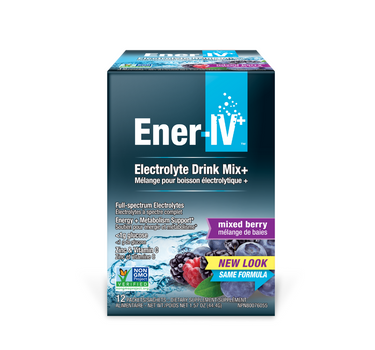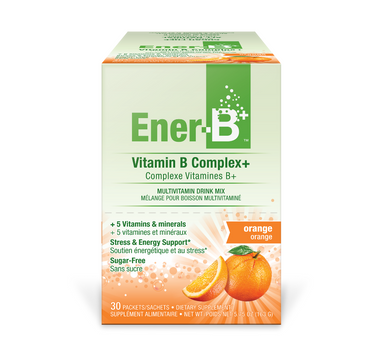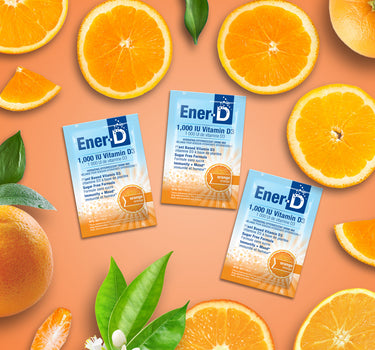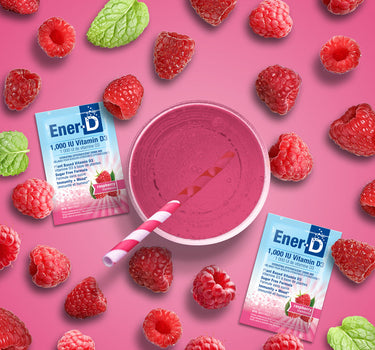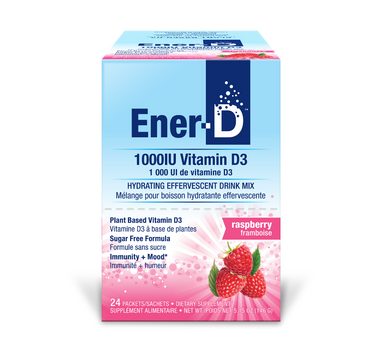
We’ve all been there. We open up our supplement cupboard to an overflowing
cabinet of pill bottles and potions that we don’t even remember buying. Half of
which are words we can’t pronounce and they are all long past their expiration date. Green tea powder is supposed to be yellow - right?
In today’s article, we want to simply your supplement routine and introduce you to
to the Ener-Life Stack. With 4 sub-brands under the Ener-Life umbrella; Ener-B,
Ener-C, Ener-D and Ener-IV, we are going to make it easy on you to rock your supplement routine with confidence. Healthy year round, now that is a style that is
in season, forever!
Before we dive into what supplements to take with what, let’s first discuss the role
that each vitamin and mineral plays.
Nutritional Breakdown:
Vitamin B:
B vitamins are essential for overall health and vitality. They serve as the foundation for a healthy body, influencing energy levels, brain function, and cellular metabolism. The vitamin B complex (which includes thiamine (vitamin B1),
riboflavin (vitamin B2), niacin (vitamin B3), pantothenic acid (vitamin B5),
pyridoxine (vitamin B6), biotin, folic acid, and the cobalamins (vitamin B12) plays a crucial role in supporting cell health, the production of red blood cells, maintaining energy levels, promoting good eyesight, enhancing brain function, aiding digestion, stimulating appetite, ensuring proper nerve function, and contributing to the production of hormones and cholesterol. They also serve to support cardiovascular health and maintaining optimal muscle tone.
Some foods rich in B vitamins include: meat, seafood, poultry, eggs, dairy products, legumes, leafy greens, seeds, and fortified foods.
Vitamin C:
Vitamin C is an essential nutrient for many aspects of our health one of which is our immune system. Our bodies use our Vitamin C reserves during times of stress, illness or infection. Vitamin C is found naturally in foods and is identified as ascorbic acid. It is bioavailable for some individuals, while irritating for stomach linings and guts for others. This is why a plant-based powder solution is crucial for maintaining a healthy level of Vitamin C in our bodies. The body utilizes vitamins for a variety of cellular activities, including detoxification, mood regulation, immunity protectionand as an enzyme co-factor for at least eight important biochemical reactions. According to scientists, “Vitamin C plays an important role in a number of metabolic functions including the activation of the B vitamin, folic acid, the conversion of cholesterol to bile acids and the conversion of the amino acid, tryptophan, to the neurotransmitter, serotonin. It is an antioxidant that protects the body from free radical damage.” Vitamin C, also called ascorbic acid, is necessary for the growth, development and repair of all body tissues. It's involved in many body functions, including the formation of collagen, absorption of iron, the proper functioning of the immune system, wound healing, and the maintenance of cartilage, bones, and teeth.
Foods that are rich in Vitamin C include: blackcurrants, broccoli, peppers, guava, kale, kiwi, citrus fruits, papaya and sweet potatoes.
Vitamin D:
Vitamin D is essential for overall health, primarily known for its role in helping the
body absorb calcium, which is crucial for strong bones. Together, they work to
prevent osteoporosis, a condition that weakens bones and increases fracture risk.
Beyond bone health, vitamin D supports muscle function, nerve communication,
and boosts the immune system to combat infections from bacteria and viruses.
Vitamin D even stops our parathyroid hormone from causing calcium to leach out of our bones when our levels get low. Vitamin D also teams up with our intestines to make sure we soak up enough calcium and phosphorus for strong, sturdy bones. It also helps our bodies respond better to insulin, a crucial role for maintaining blood sugar levels, especially those with Type I or II diabetes. Research has shown that vitamin D might play an important role in regulating mood and decreasing the risk of depression.
Foods rich in D vitamins include: oily fish, including salmon, mackerel, and sardines. Other sources include egg yolks, red meat, and liver.
Calcium:
Calcium is the most abundant mineral in the body. It is crucial for bone and dental
health, but it also supports blood clotting, muscle function, heart rhythm regulation, and nerve activities. Most of the body's calcium resides in bones, with a small portion circulating in blood, muscles, and other tissues. The body carefully regulates calcium levels through hormones like parathyroid hormone (PTH) and calcitonin. Calcium also aids sending and receiving nerve signals. Ionized calcium (Ca2+) is the most versatile cellular messenger. All cells use calcium signals to regulate their activities in response to extrinsic and intrinsic stimuli. It also helps to contract and relax muscles.
Foods rich in calcium include: chia seeds, cheese, yogurt, salmon, beans, lentils, whey protein, leafy greens, edamame and tofu.
Magnesium:
Magnesium is a vital mineral found abundantly in the body, naturally occurring in
many foods and added to others, and available as a dietary supplement or in
medications like antacids and laxatives. It serves as a cofactor in over 300 enzyme systems that regulate a wide array of biochemical reactions. These include protein synthesis, muscle and nerve function, blood glucose control, and blood pressure regulation. Magnesium is essential for energy production through processes like oxidative phosphorylation and glycolysis. It plays a crucial role in bone structure and is necessary for the synthesis of DNA, RNA, and the antioxidant glutathione. Additionally, magnesium facilitates the active transport of calcium and potassium ions across cell membranes, which is critical for nerve impulse transmission, muscle contraction, and maintaining a regular heart rhythm.
Foods rich in Magnesium include: dark chocolate, avocados, nuts, legumes, tofu, seeds, whole grains, fatty fish and leafy greens.
Potassium:
Potassium is a vital mineral, ranking as the third most abundant in the body. It
plays key roles in regulating fluid balance, transmitting nerve signals, and
controlling muscle contractions. About 98% of the body's potassium resides within
cells, with the majority in muscle cells and smaller amounts in bones, liver, and red blood cells. As an electrolyte, potassium ions carry a positive charge when dissolved in water, enabling them to conduct electricity. This electrical activity is essential for functions such as maintaining blood pressure, transmitting nerve signals, coordinating muscle movements, regulating water balance, and balancing pH levels in the body to ensure optimal acidity and alkalinity. Thus, maintaining appropriate levels of electrolytes like potassium is crucial for overall health and bodily functions.
Foods rich in potassium include: leafy greens, avocado, potatoes, butternut squash, beets, pomegranate, guava, sweet potatoes and bananas.
Sodium:
Sodium is a crucial electrolyte in the body, essential for maintaining normal bodily
functions. It's predominantly found in blood and the fluid surrounding cells, where it helps regulate fluid balance and plays a vital role in nerve and muscle activity.
Sodium enters the body through food and drinks, and exits primarily through sweat and urine. Healthy kidneys maintain a steady sodium level by adjusting excretion in urine. When sodium intake or loss becomes imbalanced, it affects the overall sodium level in the body, potentially leading to conditions like hyponatremia (low sodium) or hypernatremia (high sodium) depending on the blood concentration. If has low sodium levels, they will commonly experience a myriad of the following symptoms: nausea or vomiting, headaches, muscle weakness, spasms, cramps, low blood pressure, dizziness, low energy, fatigue or loss of appetite.

Overview:
So know that we have all of the profiles on our essential vitamins and minerals, let’s condense it into an easier to digest format. While there is an abundance of foods one can take to meet their nutritional needs, life happens, we get busy and
sometimes we don’t eat our 5 servings of fruits and vegetables. And that’s where
your Ener-Life stack comes in. Rest assured, your body will have all of its levels met regardless of what season of life it is in. Stressed at work? Training for a marathon? Battling cough and cold season? Ener-Life has you covered!
Ener-B |
Ener-C |
Ener-D |
Ener-IV |
|
Daily |
1 | 1 | 1 | - |
During Exercise |
1 | 1 | 1 | 1-2 (pre or post workout) |
Under Stress |
2 | 1 | 1 | - |
Immune Season |
- | 1 | 1-2 | - |
When Sick |
1 | 1 | 1 | 1 |
** The latest science indicates consuming 4–6 grams of sodium, 3.5–5 grams of
potassium, and 400–600 milligrams of magnesium per day leads to optimal health
outcomes for athletes
Daily Recommended Intake
Adult (18+) |
|
Recommended Daily Intake |
Upper Limit (RDA) |
Vitamin B |
Male | B1: 1.2 mg B2: 1.3 mg B3: 16 mg B5: 5 mg B6: 1.3 mg B7: 30 mcg B9: 400 mcg B12: 2.4 mcg |
B1: N/A B2: N/A B3: 35 mg B5: N/A B6: 100 mg B7: N/A B9: 1000 mcg B12: N/A |
| Female | B1: 1.1 mg B2: 1.1 mg B3: 14 mg B5: 5 mg B6: 1.3 mg B7: 30 mcg B9: 400 mcg B12: 2.4 mcg |
B1: N/A B2: N/A B3: 35 mg B5: N/A B6: 100 mg B7: N/A B9: 1000 mcg B12: N/A |
|
Vitamin C |
Male | 90 mg | 2000 mg |
| Female | 75 mg | 2000 mg | |
Vitamin D |
Male | 600 IU | 4000 IU |
| Female | 600 IU | 4000 IU | |
Calcium |
Male | 1000 mg | 2500 mg |
| Female | 1000 mg | 2500 mg | |
Potassium |
Male | 3400 mg | N/A |
| Female | 2600 mg | N/A | |
Magnesium |
Male | 45 mg | 350 mg |
| Female | 45 mg | 320mg | |
Sodium |
Male | 1500 mg | 2300 mg |
| Female | 1500 mg | 2300 mg |
** For a full breakdown of the Governmental Recommended Daily Intakes, please
reference the following link.

